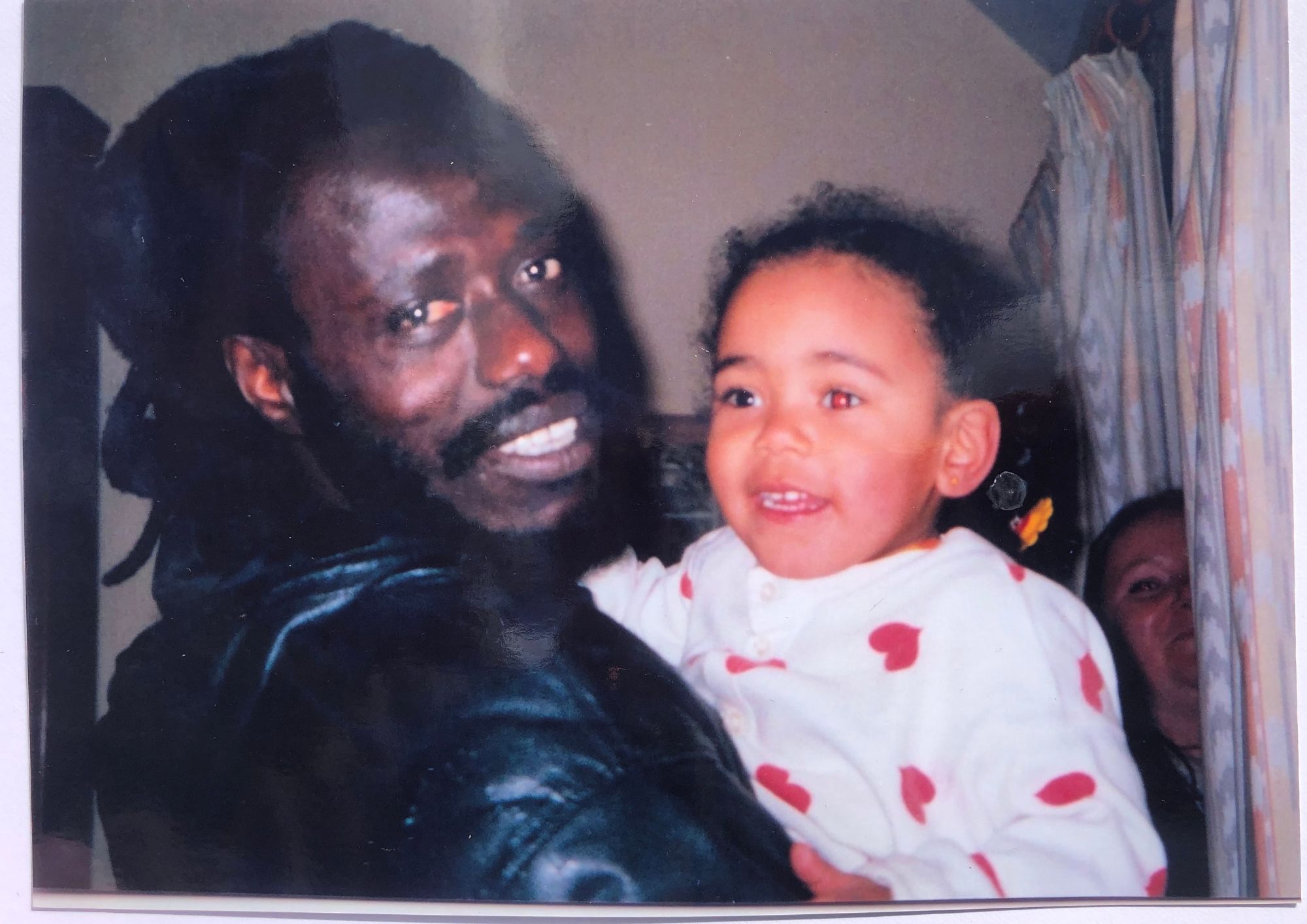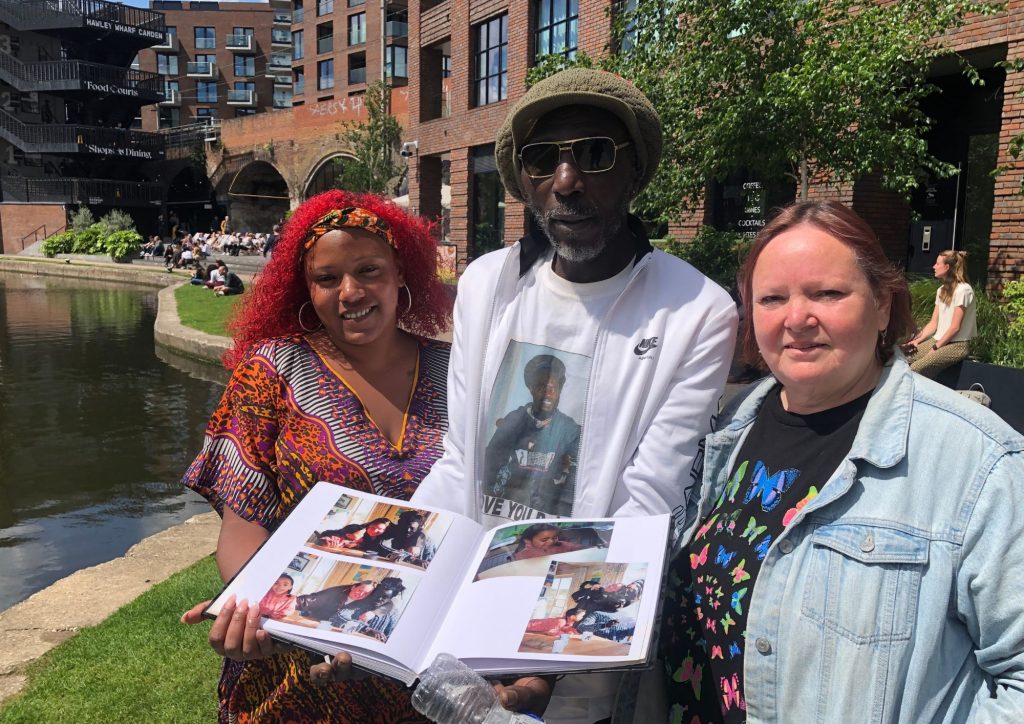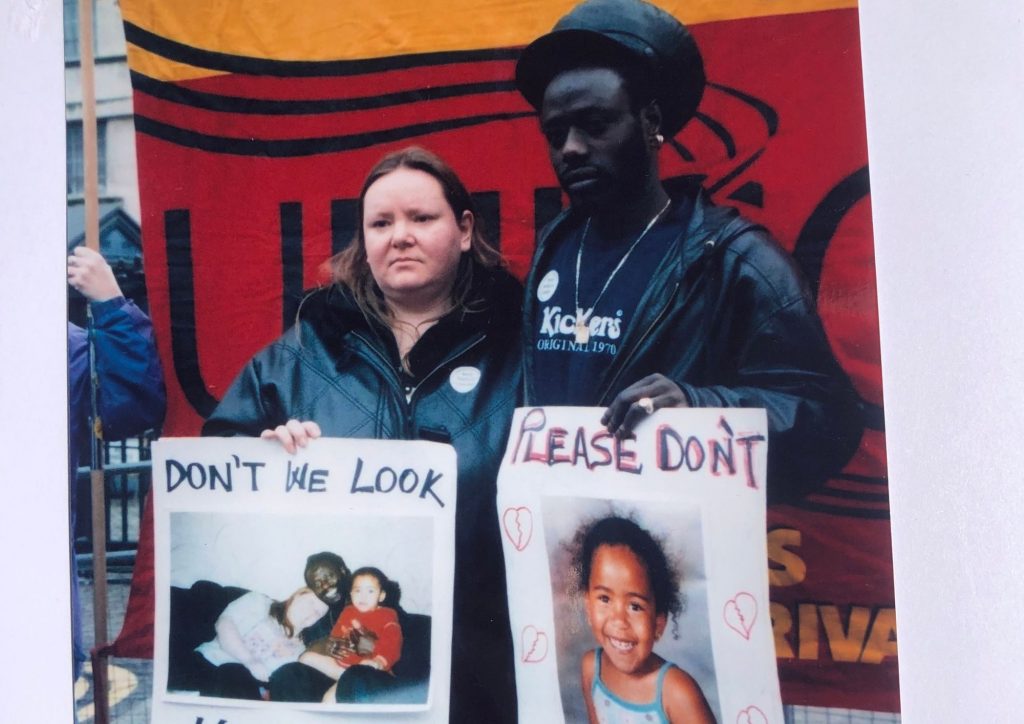Twenty years on, daughter returns to canalside where father choked to death while being held down by police
Family still have questions over circumstances of Kebba Jobe's death
Friday, 17th May 2024 — By Dan Carrier

Kebba Jobe with his daughter Rohey
ROHEY Jobe was a primary school pupil when her mother, Jacky, received a phone call that would change their lives.
Aged eight, Rohey recalls sitting at home with her mother 20 years ago when they found out her father, Kebba Jobe, had died.
On Wednesdat, Jacky and Rohey met with friends on the canal towpath in Camden Town at the spot where Kebba choked to death while being forcibly held down by police officers.
His death was two decades ago this week, but the family said they still search for answers.
Mr Jobe was 42 when he died from asphyxiation. A coroner’s report revealed a bag of cannabis was caught in his throat as a plainclothes officer tackled him. Another team of officers arrived and attempted to give him the kiss of life instead of working out he needed his airway freed.
“I remember my mum getting the phone call when we were at home and I just remember her face. I just knew something was very wrong,” Rohey said this week.
That hot May weekend in 2004 saw his friends and family react angrily with a march to Holmes Road station and a noisy but peaceful sit-in on the police station steps.
Later, thousands would join a demonstration along Kentish Town Road, demanding Mr Jobe’s death was investigated.
Rohey said: “It did not hit me at first and then we had the marches and the demonstrations. I felt amazed and overawed at the turnout. “It was a big comfort. There were lots of people who cared – and still do. But then I remember the horrible parts. It has affected me all my life.”
The coroner’s inquest was followed by an investigation by the Independent Police Complaints Commission.
The inquest heard how the officer involved had approached Mr Jobe, suspecting him of selling cannabis.
The court was told that officer did not believe Mr Jobe would try to swallow the bag of the as it was “too big”. The fact he may have a blocked airway was not communicated to other officers who arrived and tried to save his life.

Rohey and Jacky with Mr Jobe’s friend Toundey in Camden Town this week
His relatives believe that if information had been shared, medical help could have dislodged the bag.
Officers said that if they had known about this, they may have acted differently. The family’s dismay was added to by the previous problems they had faced. In 1996, Mr Jobe’s cousin Ibrahim Sey died in police custody.
Mr Jobe had also fought and won a battle for the right to remain in the UK in an immigration case that threatened to tear apart his family.

Jacky with Kebba during their campaign for the right to stay
Rohey added: “It feels like you will never get justice if you are dealing with the police. There was never a prosecution. It got quickly shut down. They said by the time it got to be looked at, witnesses had moved and couldn’t be traced. CCTV footage was missing – they claimed it was broken that day. But there were so many people there. It was Camden Lock on a Saturday afternoon.
“People watched and they knew he was dying. It was really clear and they told the officers as it happened.”
The trauma of losing her father at such a formative age – and how her mother had to cope – shaped her youth.
Rohey said: “We went to see my father’s body to say goodbye. I wanted to remember him how he was when he was alive – always smiling. But his face was just not peaceful. He had a massive lump on his head. Seeing him like that… it was such a big shock. I still have nightmares about it. It was very hard growing up knowing what happened.”
Another element is how Rohey has grown up with suspicions of police.
She said: “It has made it hard for me to deal with the police. I just associate them with my dad’s death. I feel afraid when I see them. Too many times, nothing has happened and it continues today. Another person dies and nothing is done. It is a repeated pattern and is a constant reminder of what happened.
“There needs to be serious adjustments made to how the police are monitored. It needs to be done to make sure we are safe, instead of this feeling that everything was brushed under the carpet.”
Now 28 and with her own family, she and her mother are as close as ever.
This year, they travelled to Gambia to visit Mr Jobe’s grave and see his family, a trip that both found helpful. For Jacky, the pain of her husband’s death never diminishes.
“It feels as if it were yesterday,” she said. “It hurts. People say to me they hope he is resting in peace – but he won’t until justice is done. Kebba was very strong-minded and I still feel him around me and he would say justice needs to be done.”
She recalled the terrible moment she found out something had happened. “A friend called me and asked if I was coming down to the march to the station. I said, ‘What march?’. I didn’t know – and she just said, ‘Kebba has died’. I fell to the floor.”
Later, she said a lawyer was provided to the family “but they did not ask the questions we wanted”.
Jacky said: “The place was packed, so many saw it, so many were screaming at the police to stop, that it was killing him.
“If it had happened today, it would have been filmed by everyone there. But they didn’t put out a call for witnesses for two weeks, and then it was just a sign on the Kentish Town Road, not on the Lock. We still hope one day to take the issue back court, because we will never stop wanting justice for Kebba.”
